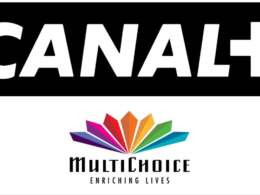In what appears to be a disturbing trend, Nigerians across the country are reporting an unprecedented surge in relentless and unsolicited calls allegedly linked to Opay, one of Africa’s leading fintech platforms.
For many, the experience has gone beyond inconvenience and crossed into what some are calling digital harassment.
“I have received over 50 calls in the past few days alone. Every time I block one number, another one gets through. And the most shocking part? I don’t even use Opay,” one Lagos-based professional told Techmoonshot.
The complaints aren’t isolated. Reports gathered by Techmoonshot reveal a pattern of persistent calls, many of which are reportedly pitching annoying promotional offers and unsolicited services. Recipients say the calls are often from different unknown numbers, making blocking ineffective and leading many to suspect the use of auto-dialing systems or outsourced call centers working without oversight.
Marketing or Harassment?
Opay, once praised as a driver of financial inclusion, now faces mounting backlash over what critics are calling “predatory marketing practices.”
“This is not customer engagement, it’s harassment,” another affected user said. “Even people who might have considered signing up for their services are now vowing never to touch anything with Opay’s name on it.”
Social media platforms are swelling with similar complaints, suggesting this is not an isolated incident but a widespread nationwide nuisance.
Privacy and Data Questions
The scale of the reports has also raised serious concerns about data security. Many of those receiving the calls claim they have never signed up for any Opay service, leading to questions about where the company—or its agents—are sourcing phone numbers.
“If a company can cold-call people who never opted in, what does that say about how our personal data is being handled?” asked a tech policy analyst contacted by Techmoonshot. “It’s a violation of consumer trust and may breach Nigeria’s Data Protection Act.”
A Looming PR Disaster
For a company trusted with sensitive user information and operating under the Central Bank of Nigeria’s oversight, these allegations strike at the heart of its credibility. Unchecked, such aggressive and unsolicited marketing could lead to regulatory scrutiny and lasting brand damage.
Consumer rights advocates are already calling for the Nigerian Communications Commission (NCC) and CBN to investigate Opay’s practices and hold the company accountable for potential breaches of consumer privacy.
Nigerians Are Demanding Accountability
The growing outrage has triggered a wave of public calls for action. Across social media, consumer forums, and even professional networks, Nigerians are making their expectations crystal clear:
- Immediate Explanation: People want Opay to issue a transparent and public statement explaining the sudden surge of marketing calls. Many believe silence only reinforces suspicions of unethical practices.
- Clarity on Data Sources: Citizens are demanding to know how the numbers of non-customers were obtained. If individuals who have never interacted with Opay are being targeted, it raises a chilling question about the scale of potential data harvesting and whether third-party brokers are being used without proper consent mechanisms.
- An End to Unsolicited Promotions: There are growing calls for the company to suspend all outbound marketing campaigns until a full internal and regulatory investigation is conducted. For a digital finance company, the line between customer outreach and digital harassment must be clear—and Nigerians say that line has been crossed.
A Reputation on the Brink
Opay’s once-pristine image as a fintech success story is now hanging in the balance. The company that was celebrated for driving financial inclusion in Africa is facing accusations of digital overreach, privacy invasion, and reckless marketing practices.
The sentiment among Nigerians is shifting from frustration to deep concern: If a company can bombard you with dozens of calls without your consent, what else can it do with your data? Can your financial or personal information truly be safe in such hands?
Until these questions are answered, trust is eroding rapidly. And for a fintech company, once trust is gone, the entire foundation of the business begins to crumble.












